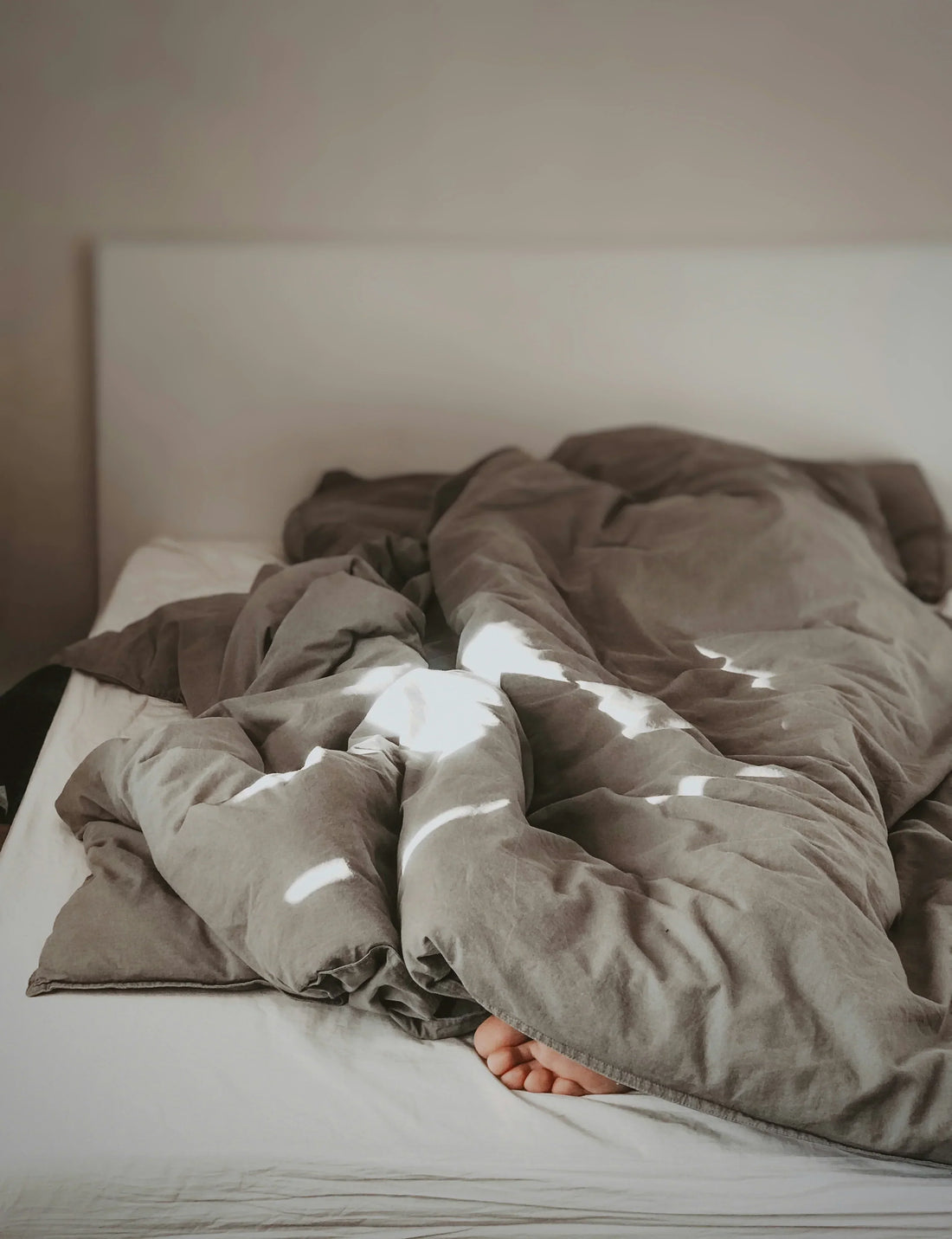
The Sleep-Well Guide: Mind, Body & Comfort
Share
IG: @therafly_
I’m Pragya Agarwal, a psychologist practicing in Guwahati, Assam. I am passionate about helping people navigate stress, anxiety, relational concerns and self-esteem issues. As someone who works closely with adolescents and young adults, I’ve seen firsthand how closely our mental and physical health are connected. I truly believe that adjusting your physiology—through things like sleep, movement, and relaxation—is key to improving mental well-being. It’s not just about thinking better; it’s about feeling better in your body too.
1. How does mental health affect sleep quality?
In my work as a therapist, I’ve seen how closely mental health and sleep are connected. When someone is struggling emotionally, their mind often feels overstimulated—whether it's from stress, anxiety, or unresolved thoughts—which makes it harder to relax enough to fall asleep. On the flip side, when sleep is disrupted for a long time, it can impact mood, concentration, and overall mental resilience. It’s a cycle: poor mental health can lead to poor sleep, and poor sleep can worsen mental health. Helping clients understand and break that cycle is a big part of fostering both emotional and physical well-being.
2. What strategies can help reduce anxiety or stress to improve sleep?
When it comes to reducing anxiety or stress for better sleep, I often suggest starting with simple, grounding techniques. For example, deep breathing exercises—like inhaling for four counts, holding for seven, and exhaling for eight—can signal your body to relax. Journaling before bed can also help; writing down your worries or creating a to-do list for the next day clears mental clutter. I’ve seen clients benefit from sensory techniques too, like listening to calming music, using white noise, or even trying progressive muscle relaxation, where you tense and release different muscle groups. The key is finding a routine that feels natural and helps you shift from a state of "doing" to "resting."
3. How can a bedtime routine support both mental health and better sleep?
I often tell my clients that a bedtime routine is like a signal to your brain that it’s time to wind down. When we engage in calming, consistent habits—whether it’s dimming the lights, reading a book, or doing a brief mindfulness exercise—it creates a sense of predictability and safety, which helps lower stress levels. A good routine also helps separate the busyness of the day from the restfulness of the night. I’ve noticed that people who stick to a bedtime routine not only fall asleep more easily but also feel more grounded emotionally because they’ve carved out time to care for themselves, even if it’s just 10-15 minutes.
4. Why is self-care essential for improving sleep habits?
Self-care is crucial for good sleep because it’s all about creating balance and reducing stress. It shows up in so many forms—physical self-care, like taking a warm shower, using an eye mask, or wearing your favorite comfortable sleepwear (preferably something cozy from Feridora!), helps your body relax. Mental self-care, such as mindfulness or journaling, quiets the mind and makes it easier to let go of the day’s worries. And relational self-care, like maintaining healthy boundaries or connecting with supportive people, can reduce emotional tension that might otherwise keep you up at night. When you make self-care a priority, you’re not just improving your sleep—you’re also strengthening your emotional and physical well-being.
5. What impact does screen time have on sleep, and how can we manage it?
Screen time can be one of the biggest culprits when it comes to poor sleep. The blue light from screens suppresses melatonin, the hormone that helps us feel sleepy, which makes it harder to fall asleep. Beyond that, scrolling through social media or checking emails before bed can overstimulate the mind, keeping it in a "ready-to-go" state instead of a "ready-to-rest" one. To manage it, I recommend setting a clear boundary with screens—try switching them off at least an hour before bedtime. Instead, you could read a book, listen to calming music, or even try journaling to wind down. If avoiding screens isn’t always possible, using blue-light-blocking glasses or enabling the night mode on your devices can help minimize the impact. Creating this buffer allows your mind and body to transition more naturally into sleep mode.
6. On the topic of comfort wear, could you share your thoughts on how what you wear to bed impacts your sleep?
What you wear to bed might seem like a small detail, but it can have a big impact on your sleep quality. Comfortable, breathable fabrics help regulate your body temperature, which is crucial for restful sleep. Tight or scratchy clothing, on the other hand, can be distracting and make it harder to relax. I often encourage people to choose sleepwear that feels soothing to them—whether it’s soft cotton, silky textures, or cozy loungewear. It’s also a form of self-care, a way to signal to your body and mind that it’s time to rest. A good set of pajamas, like those from Feridora, can elevate your bedtime routine and create a sense of comfort that makes sleep come naturally.
7. How can we set the tone for a good night’s sleep?
Setting the tone for a good night’s sleep starts with creating an environment and routine that encourage relaxation. Maintaining a consistent sleep schedule—going to bed and waking up at the same time every day—can help regulate your body’s internal clock. Minimising tension is another key factor; you can do this through relaxation techniques like body scan meditations or listening to white noise. I also suggest making your bedroom a sanctuary for rest—dim the lights, keep the temperature comfortable, and ensure your mattress and pillows provide proper support. Sometimes small rituals, like burning a calming lavender scent or sipping a caffeine-free tea, can signal your brain that it’s time to unwind. Creating a cozy, comfortable sleep environment with minimal distractions can also help cue the body to relax, paving the way for a restful night’s sleep.
